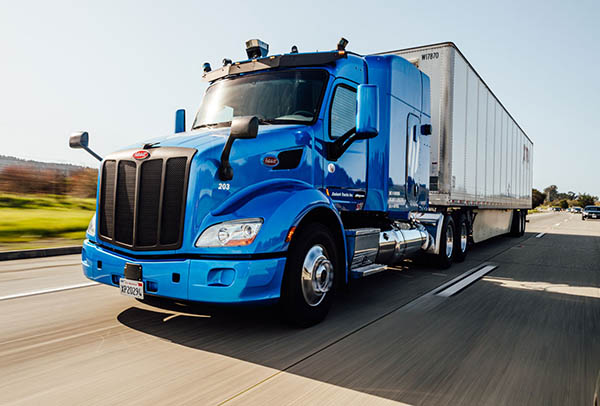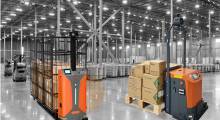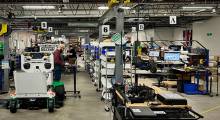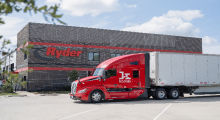More autonomous trucks are coming to roads in the U.S. South and West. Embark Trucks Inc. yesterday announced its expansion into Texas and the launch of a new self-driving truck lane between Houston and San Antonio. The Belmont, Calif.-based company also unveiled a new autonomous trucking facility and said it plans to hire aggressively in the Houston area next year.
“Texas is the center of America's trucking industry, and it’s the perfect home for Embark’s expanded operations,” said Stephen Houghton, chief operations and fleet officer at Embark. “We’re excited by the talent and entrepreneurial spirit that Houston has to offer.”
“Our new footprint in Texas will support our growing network of partners and fuel our rapid growth across the Sunbelt,” he added. “As we scale our operations, we will continue to work closely with local and state governments and other organizations so that we improve the safety, sustainability, and efficiency of trucking with autonomous technology.”
Founded in 2016, Embark said it is building its Drive autonomy software to improve the safety, efficiency, and sustainability of the nearly $700 billion-a-year trucking market. The company claimed that it has the longest-running self-driving truck program in the U.S.
Embark added that it has partnered with some of the largest shippers and carriers in the nation, collectively representing over 35,000 trucks and $22 billion in freight spend.
In July, Embark announced its plan to merge with Northern Genesis Acquisition Corp. II, a special-purpose acquisition company (SPAC), raise $614 million, and be publicly listed on the Nasdaq Stock Market.
Reasons for Houston expansion
Embark said the Houston area offers three strategic advantages as a trucking hub as it scales up its business.
Location: Houston is “uniquely positioned for commercially viable long-haul autonomous freight,” said Embark. The city is at the center of trucking lanes of more than 600 mi. (965.6 km) in length. These are ideal for automation because they cannot be completed in a single day by a human driver due to hours-of-service limitations, it said.
Hauls on such lanes could see rapid improvements in speed using autonomous freight, according to Embark. For example, a 600-mile run could take approximately 22 hours to complete manually, assuming full compliance with the federal rules limiting working hours, while that same run would take just 12 hours to complete autonomously.
Industry-leading expertise: The Houston area is home to leading academic and research institutions dedicated to autonomous vehicles, such as those at Texas A&M University. Embark said it expects to work closely with these partners to test, deploy, and validate its technology.
Houston also has a mature trucking and self-driving vehicle workforce, representing a deep talent pool for Embark to draw from as it aggressively expands its employment in the region.
Public-sector engagement: Texas boasts a thriving autonomous vehicle sector, due in part to the Lone Star State’s extensive public-private partnerships. By engaging with developers to support the safe operation of autonomous trucks, the Texas Departments of Transportation (TxDOT) and Public Safety (TxDPS) have positioned the state as a leader that will reap the safety and efficiency benefits of the technology.
Embark said it will continue to cultivate its relationships with state and local agencies. The company is a longstanding participant in the Texas TxDOT Connected and Automated Vehicle (CAV) Task Force.
Together, Embark said these factors will help it execute against its go-to-market timeline as it prepares for commercial launch of the Embark Driver in 2024. The company expects to begin hauling freight without drivers for its partners between San Antonio and Houston as early as 2022.
Other self-driving truck developers operating in Texas include Waymo Via, Gatik, Kodiak Robotics, TuSimple, and Aurora.
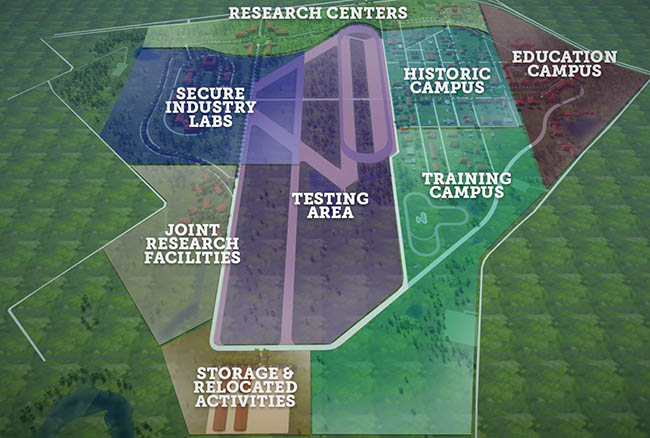
Embark partners with Texas A&M
To support its expansion, Embark announced a partnership with the Texas A&M Engineering Experiment Station (TEES) to use its test track. The company plans to work closely with the Center for Autonomous Vehicles and Sensor Systems (CANVASS) and faculty in the J. Mike Walker '66 Department of Mechanical Engineering at Texas A&M University. It said it intends to achieve remaining technology milestones and develop new autonomous vehicle capabilities.
These milestones represent the final hurdles to deploying commercially viable autonomous trucks, said Embark. They include challenges such as emergency vehicle interactions, pulling over to safety in emergency situations, and performing evasive maneuvers.
“Embark’s mission to safely, robustly, and effectively roll out commercial autonomous trucks aligns closely with TEES’ mission to turn research and development activities into useful applications and business activities,” said Dr. Srikanth Saripalli, director of CANVASS. “We’re excited to welcome Embark to our RELLIS Campus. Our faculty and students will have the unique opportunity to apply theory to the real world by working together with Embark on engineering projects.”
Article topics
Email Sign Up



